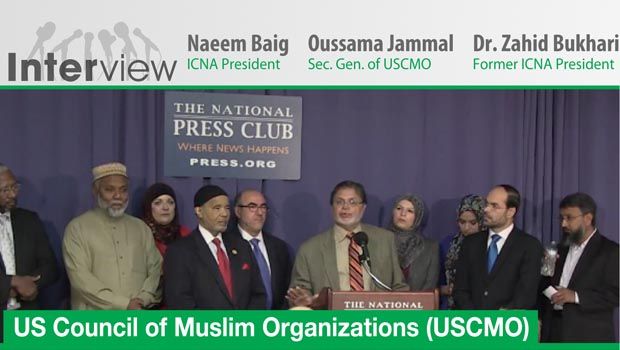College is right around the corner for the new freshman of 2010. It’s also not that far off for the class of 2011 either. It’s a very exciting and daunting process: applying for college, picking which one is right for you, getting everything you need (and plenty of things you don’t need), orientation, and it just goes on and on. This article is written to try to highlight some things that are relevant for the Muslim parents and students in this entire process.
Deadlines, Deadlines, and More Deadlines
One of the major sources of confusion about applying for college is to know what all the different steps are to apply and get accepted. The good thing is there are several resources available to help you understand this such as websites, admissions, counselors, etc.
There is the normal process to apply to college, which lasts into the spring of senior year or the early admissions process where you can find out by winter of senior year. If you decide to apply using early decision, you will have accelerated deadlines. The timeline for the below tasks is for the normal process.
The process can start as early as the winter of junior year to look for scholarship opportunities, etc.
The SATs should be given in the spring of junior year. This can be delayed until September of senior year.
Get the college applications for potential colleges in the fall of senior year. It helps to have a master calendar with all the dates and deadlines filled in to make sure you plan ahead.
By the end of October of senior year, the college application essays should be finalized and completed. Follow up with teachers and anyone else who needs to send in information such as recommendations that they have done so. The CSS application should also be completed as part of the process for getting financial aid.
January of senior year is the time to fill out the FAFSA (financial aid) application.
Colleges will let you know of their decision in April of senior year (finally!).
Early May of senior year is when a response is needed to colleges on whether the student has accepted or rejected the offer to attend.
June of senior year is when the high school needs to send the final transcript to the college you will be attending.
If you miss the entire process, and in the fall need to register for classes, there are alternatives to waiting for a whole year. It might be possible to attend the college as a non-matriculated student. In these cases, work with an admissions counselor at the college to understand the options.
Where Can You
Save Some CA$H?
Another major source of confusion for college is how to pay for it. Here are a few points to remember:
Make sure to talk to the admissions counselor on where to get all the relevant information on financial aid and scholarships.
Not all colleges are equal. There are private schools, which tend to more expensive, and then there are state schools, which are cheaper. State schools are especially cheaper if you are a resident of the state, which in most cases means you need to be living in the state for some time, like a year, etc.
A college has its own strengths and weaknesses in their various academic programs. For example, a particular college may rank very high in their sciences, but not for their business departments. Likewise, some colleges have a strong emphasis on research, while others do not. Some colleges offer a class schedule that has a strong emphasis on evening classes for students who are working full-time already. It’s very helpful to evaluate a college against these criteria to understand what a great fit is for you.
A great way to save money is to know where to buy things. For example, there are several resources to buy used textbooks, which will save you significant money over buying new books for each class. Bulletin boards on campus or even websites like Amazon (www.amazon.com) and Campusbooks (www.campusbooks.com ) are great ways to find cheaper books than the college bookstore.
Sites like Craigslist (www.craigslist.com ) and Freecycle (www.freecycle.org ) offer tons of opportunities to get things needed for a college dorm room for cheap or even free.
Commuting from home will save significant money over staying in the dorms. If that is not an option, a good alternative might be to get a place off campus, but close by. It might be even more cost effective to share a place with a friend.
If staying on campus is the case, then make sure you pick the right meal plan for you. If you plan to do a lot of cooking yourself or bringing food from home, then plan accordingly.
Maintaining the Muslim identity
From an Islamic perspective, one of the most important factors for parents in picking which college their kids should attend is how far it is from home and how they will keep an eye on their kids. It all comes down to trust. In order for you to be comfortable with letting your children stay away from home, you need to be reasonably confident that they are comfortable representing themselves as Muslims.
Does this mean that you should expect to know every single thing your child is up to or that they may never try to hide anything from you? Of course not! Trust is not about full disclosure. It’s about knowing that given different situations, your child will respond in a way that stems from their Muslim character. How will they interact with a non-Muslim roommate? Will they be self-conscious about being different on things like praying, fasting, or not going out to the Thursday night parties?
From the students’ perspective, this is their time to grow and learn how to interact with society as Muslims. This does not mean they need to change themselves to fit in. This does not mean they need to pretend to be someone else in college and be someone else at home. This is an opportunity to understand how they feel about being Muslim and what that means to them on a day-to-day basis.
What Are Friends For?
One of the most important things to be said here is to make sure you pick your friends wisely. Friends, whether you want to admit it or not, have a huge influence on you. They can help you and give you a social safety net. It is a lot easier to make time to pray if you have others around you who are doing it too. When you are thinking about which college to go to, check out if there is a strong MSA on campus. What are their activities? Do they have weekly meetings and discussions? Is there Juma’ah on campus? These are great places to meet new people and develop your own circle of friends who will help you build and maintain your Muslim character throughout the college years. Will there be drama and fallouts? Of course, but as long as Islam is a focus, there is an opportunity to learn and grow together.
Pork is Still Haram
in College
Another thing to consider is if any halal food is available. A lot of campuses are now starting to cater halal food. If not, what are the alternatives available? Some dorms allow students to have a kitchen available or, at the very least, have a microwave to heat up food from home.
Beyond College
Although not directly related to college, but something that can be very helpful, is for the students to get involved in the local masjid by the campus. This helps create awareness in the Muslim community about campus life and leads to a healthy relationship between the two. If there is a Sunday school there, volunteer to teach there. Teaching in itself is an amazing experience where you can often learn and grow yourself, learning critical life skills such as public speaking and being able to articulate concepts clearly. Consider yourself warned though because keeping a classroom of kids entertained and engaged is no simple task, and you will probably be frustrated at first until you develop your own style of keeping order in the classroom.
Keeping the Tradition
Every year, thousands of Muslims head to college, seeking knowledge and experiences that will set them on a path to success and prosperity. It’s a grand and noble ambition, and the Islamic tradition is rich with examples of scholars. They were not only religious, spiritual, and legal authorities, such as in tafseer and fiqh, but also recognized scholars in the arts and sciences like poetry, astronomy, and medicine Their legacy was the result of a diverse passion for knowledge and their endless pursuit for understanding the universe. We need to make sure that this tradition is not lost in today’s college days and we follow the precedence they have set.






